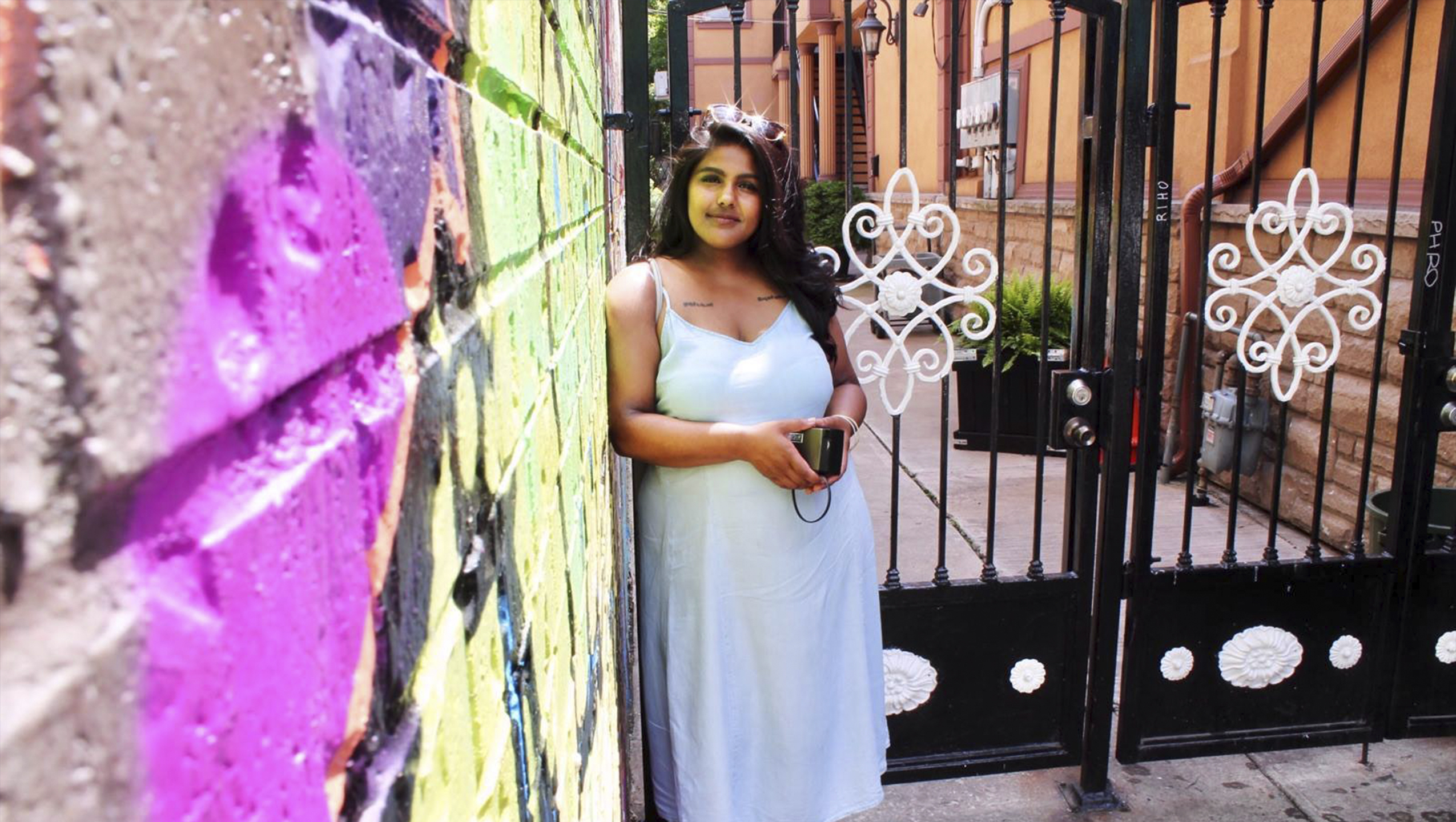By Rajalaxmi Nayak
From a young age, director, producer and writer V.T. Nayani was always drawn towards creative subjects. Performing in theatre and practicing dance were her ways of indulging in her creative side. These interests would soon grow into a full career in filmmaking that led her to this year’s Toronto International Film Festival (TIFF) where she premiered her film This Place.
The film is a queer love story about two young women: Malai, who is of Tamil descent, and Kawenniióhstha, who is Kanien’kehá:ka (Mohawk) and Iranian.
The story follows the two characters whose love story kickstarts at a laundromat in Toronto. Soon however, they realize their unresolved strained relationships with their parents may get in the way of their own romantic relationship. The film follows their journey together back apart apart as they navigate their own personal challenges.
Nayani, who graduated from Toronto Metropolitan University’s (TMU) journalism program in 2010, began writing This Place with co-writers Kawennáhere Devery Jacobs and Golshan Abdmoulaie in 2017. When she found out that the film would be premiering at TIFF, she remembers just “bawling and blubbering.”
Nayani and her team weren’t prepared for the news after the discouraging rejections they had over the previous months.
“There [was] about seven months of receiving rejections,” she said. “I think that is really important to say because I don’t want people to feel alone when they’re getting rejections.”
“People didn’t trust me to tell my story”
What made the moment even more special was that Nayani got the news from Kelly Boutsalis, a programmer at TIFF, who happened to be a Mohawk woman herself. “[Boutsalis] genuinely seemed emotional and excited,” Nayani said. “[She] told us how special it was to hear a mother and daughter speaking Mohawk on screen.”
Nayani said she was thrilled for her film premiere in the very city that has shaped the story.
“I think [Toronto] is very unique,” she said. “[From] the number of people from different communities that live here, the history of this land and Indigenous communities here whose land it is and people who have arrived here.”
Nayani was born and raised in Toronto and grew up in the Flemingdon Park and Scarborough neighbourhoods, where almost everyone was an immigrant or refugee, she said.
Nayani’s parents came to Canada as refugees in the late ‘80s as a part of the persecuted Tamil community originally from Sri Lanka. The Tamil-speaking community in the island country of Sri Lanka has faced decades of persecution after Sri Lanka achieved independence in 1948.
This has made her reflect on her own identity as someone from a displaced community. In her work, Nayani often explores the complications of life while also acknowledging the hopefulness and joy that comes with living.
While her peers got to take trips to their hometowns, Nayani couldn’t have that experience. From an early age, she wrestled with her idea of home. She also realized she didn’t have a relationship with Indigenous communities of the land she was currently living on.
Being a storyteller at heart, she contemplated this unique collision of identities between Indigenous communities and racialized immigrants and wondered how she could bring this conversation to life. And with that, This Place was born.
“I’m gonna do what I’m gonna do and no one’s gonna stop me”
Nayani was very eager to achieve a more nuanced and detailed style of storytelling in order to better portray the stories of the communities around her.
She first discovered her interest in being behind the camera when she wrote and directed a short documentary in her last year at TMU. The project, Shadeism, documented the experiences Black, Indigenous and women of colour have with beauty standards, specifically around skin tone.
Throughout Nayani’s career, she has worked on documentary projects and music videos, as well as working as an associate producer at CBC. Despite the hard-news focus during her education at TMU, she always wanted to create long-form works.
“The goal was always narrative,” she recalled.
Nayani said she’s always been intrigued by human experiences of coming-of-age. She believes that people are always coming-of-age across one’s lifespan.
“I think that we are always coming into ourselves in new ways and I’m interested in what that looks like,” she said.
As a woman of colour in the industry, Nayani’s own anxieties also proved to be a challenge. These anxieties stemmed from experiences surrounding discrimination growing up.
“People didn’t trust me to tell my own story,” she said. “It’s not just based on race, it’s gender, sexuality, you know, how you appear, your physical body.”
Determined to create her own narrative, she learned to trust her gut and take up space. “I’m gonna do what I’m gonna do and no one’s gonna stop me,” she said. “I have courage and confidence to continue to pursue those things, regardless of if people get it or not.”
Nayani shares a close bond with her family. She said her relationship with them informs her ideas as a storyteller.
Being part of a displaced community, they learned to preserve their culture by means of oral stories. She said there was always a fear that their history would be erased if it wasn’t documented in some way. For her, this mindset drives her to uphold and reimagine such stories.










Leave a Reply